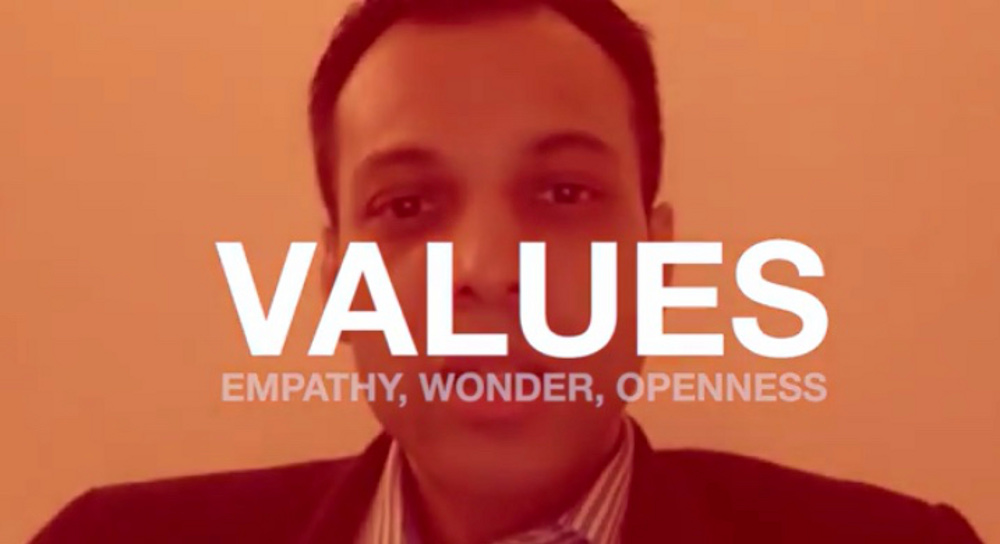 We wanted to conclude this series of video posts, which explore themes emerging from the Near Future Teaching project, with a final values post: “Empathy, Wonder and Openness”. The video features staff and students talking about how university should inspire the kind of wonder that can emerge through learning, about equity of access, and the role of empathy in our communities.
We wanted to conclude this series of video posts, which explore themes emerging from the Near Future Teaching project, with a final values post: “Empathy, Wonder and Openness”. The video features staff and students talking about how university should inspire the kind of wonder that can emerge through learning, about equity of access, and the role of empathy in our communities.
Empathy, Openness, Wonder
Picking up on themes from the values post from last week, some staff and students drew attention to further diversifying the university, noting that is “where the value of education lies, to provide it to a much global scale than trying to limit it to a few privileged people” (Mayank Roy, MSc Clinical Trials).
Some spoke to the ethos of openness at the university, and how “the real advances are going to be made by making educational resources open and free, in as much as we ever can. Because that’s that’s the way that we will transfer as much learning to people that really need it” (Simon Kelley, Geosciences). This ethos extends beyond compliance and into duty: “I think it’s something that we should regard as our duty as something that Edinburgh can actually do.”
The fostering of empathy and curiosity through teaching and technology was apparent in many of the discussions:
It can be used to teach or learn empathy and I think that’s really important, and it’s something that’s quite often lost in technology is, like human behavior I see. Well, at least it’s studied, but it’s not taught. And I think that’s quite an important thing to, as a value to have in technology.
– Elaine Ford, BSc Biological Sciences
Some foregrounded the need “to encourage curiosity and general kind of development of intellectual skills” (John Lee, Edinburgh College of Art), and some drew attention to the messiness of intellectualism, inquiry, and curiosity, and how these qualities have a tendency to evade neat compartmentalisation:
Not to try and categorize everybody, and sort of neatly calibrate everybody. Perhaps even returning to some older values of universities, and thinking more about intellectual pursuits, and inquiry and curiosity. It’s what we do with technologies that’s important, not what they do to us.
– Christine Sinclair, Moray House School of Education
Some drew light on the value of a communal curiosity:
The opportunity to wonder about stuff. I think that if you lock that off too much, you will be too deterministic, and you will lose one of the most amazing things of the university and what it’s like to just be able to wander the halls, talk to people from all different kinds of disciplines.
– Charlotte Rixten, MSc Collections and Curating Practices
The opportunity to wonder about stuff, and to do it openly with others we care for, seems like a perfect ending to this series of posts on the possible futures of digital education at the University of Edinburgh.

